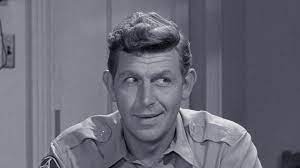
The first sign was a skip. Not in his step, not in the old CD player in his kitchen, but in the world itself. Andy, a creature of meticulous habit, was pouring his morning coffee. One moment, the dark stream was filling his favorite chipped mug, the next, it was overflowing, a viscous brown stain already spreading across the counter. He stared, bewildered, at the full mug, then at the spreading mess, then at his hand, still holding the carafe, as if a single frame of reality had simply been excised, a brief, imperceptible void in the steady flow of time. He blinked, shook his head, and mumbled, "Must be tired."
But the skips became less rare, more pronounced. A conversation with his colleague, Sarah, would suddenly jump. He’d be mid-sentence, talking about the quarterly reports, and then she’d be looking at him expectantly, as if he’d just finished a story he hadn’t started. He’d nod, feign understanding, and subtly try to pick up the threads, only to realize he had no idea what the last five minutes of dialogue had been about. It was like living inside a badly edited film, where crucial exposition was constantly being cut.
Then came the other changes, creeping in like a slow, insidious tide. His sense of taste began to fade, first subtly, then drastically. His beloved morning toast, once a symphony of buttery crunch and jammy sweetness, became a cardboard chew. Coffee, his lifeblood, turned into bitter, unremarkable water. The vibrant world of flavor, once a comforting constant, was muted, then extinguished. He tried new foods, exotic spices, but everything was flat, dull, a monochrome palette on a world once painted in technicolor.
His body, too, began to betray him. He’d trip over phantom obstacles, his feet suddenly alien things that refused to cooperate. Objects would slip from his grasp – a pen, a key, his phone – as if his fingers had forgotten their purpose. He’d catch his reflection in shop windows and see a man whose eyes held a strange, distant sadness he couldn't quite place, a shadow beneath the surface of his own familiar face. Sometimes, when he spoke, his voice sounded off-key, like a warped record, a stranger’s voice emanating from his own throat.
He tried to find a reason. He scoured his memory for triggers: a strange meal, a forgotten fall, a peculiar dream. He meticulously cataloged his symptoms in a small notebook, convinced a pattern would emerge. Was it stress? He’d cut back on work hours, took up meditation, started long walks in the park. Was it diet? He ate healthier than ever, eliminated processed foods, added supplements. Was it a neurological condition? Doctors ran tests – blood work, MRI scans, cognitive assessments. Each time, the results came back clean. "You're perfectly healthy, Mr. Vance," they’d say, their smiles tinged with a polite skepticism that felt like a quiet accusation.
The lack of an answer was the most agonizing part. If it were a disease, he could fight it. If it were an accident, he could understand it. But this was an unprovoked dissolution, a quiet unraveling of his very being with no discernible cause. It was as if he were slowly being erased, byte by byte, from the fabric of existence, and he had no idea by whose hand, or why. There was no pain, no fever, no outward wound. Only the steady, terrifying erosion of his senses, his memories, his very grip on reality.
He started avoiding people. Their concerned glances felt like spotlights on his growing fragmentation. Sarah tried to talk to him, her brow furrowed with worry, but he found himself unable to string together coherent thoughts, the words dissolving on his tongue. He would just stare blankly, a hollow echo where Andy used to be. The fear wasn't just for himself; it was the fear of what he was becoming to them – a ghost of a man, an unfinished sentence.
One evening, he sat in his living room, the familiar furniture around him suddenly feeling alien, like props on a stage he hadn't chosen. He reached for his old, worn copy of "Moby Dick," a book he had read countless times. His fingers traced the embossed title, but the letters swam before his eyes, meaningless symbols. He tried to recall the opening lines, the famous "Call me Ishmael," but his mind was a barren landscape, the memory vanished as if it had never existed.
A profound, chilling silence settled over him, deeper than any sound could be. It was the silence of understanding: understanding that there was no "why." There was no explanation, no cure, no beginning or end. He was simply happening. And the "something" was simply happening to him. He was a canvas being slowly, inexplicably, painted over with invisibility, the colors fading, the lines blurring, until all that remained was the quiet, terrifying emptiness of not knowing. And the slow, silent descent continued.